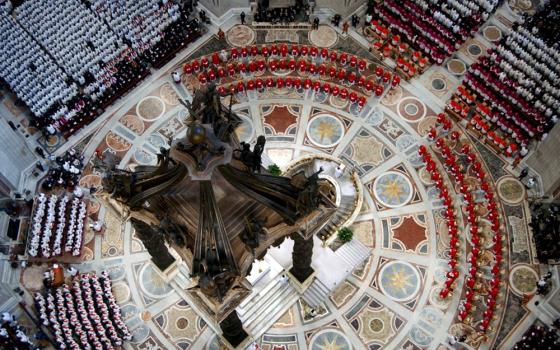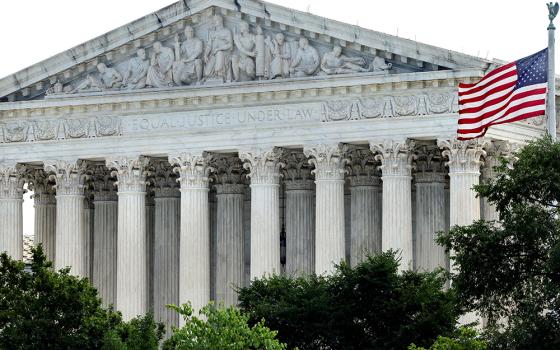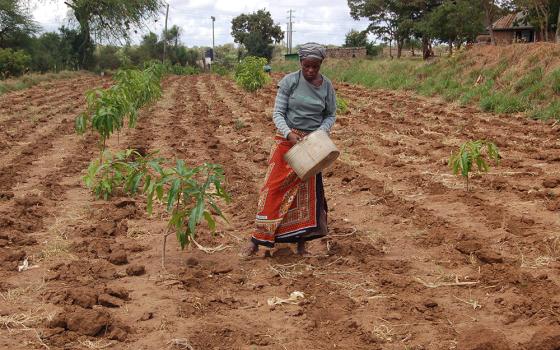I'm a proud alumnus of DePaul University (class of 2002) and had a profound experience studying in Chicago. There were so many benefits of getting a liberal arts education in an urban environment at a university that prides itself on Vincentian values.
Back in 2006, I went to hear university president Vincentian Fr. Dennis Holtschneider speak in San Francisco. I dragged my now-wife along, and we didn't really know what we were getting into -- maybe we'd swipe a few drinks and cheesy appetizers before heading on to dinner.
The president spoke, and we were blown away, mostly upon hearing that DePaul was the first Catholic university in the country that had an LGBTQ (lesbian, gay, bisexual, transgender, queer) studies program. Here was a priest speaking in public about the need to support a curriculum that honors the historic oppression of this community. We were blown away.
The academic program is set up as a minor and has a broad array of classes from various departments that make up the curriculum and form the interdisciplinary minor. (You can review the coursework here.)
Gary Cestaro, the program's founding director and a professor in the Department of Modern Languages at DePaul, filled me in on how the program came together. The minor was established in 2005 and had a lot of broad support from the ground up and the top down, growing organically out of DePaul's culture and commitment to social justice. There was already a history of interest in and advocacy for LGBTQ issues among students, staff and faculty. At the academic level, study of sexual identity was growing everywhere, not just at DePaul, so many members of faculty were writing, publishing and teaching on these identity issues. Many disciplines were offering coursework in that area, and there was a lot of student interest and demand. The program's beginnings were just like that of any other new program: It started with a curriculum committee, then went to the deans for approval, then went to the president. It made sense to allow students to recognize this as a minor on their transcript.
There had to be some conflict for a program like this at a Catholic university, I said.
"We had universal enthusiastic support from the bottom to the top," Cestaro said. "This fits in very well with DePaul's mission and commitment to social justice." There were some voices that objected, however, including Cardinal Francis George in a weekly bulletin and Catholic Citizens of Illinois, who published this letter.
So what does one actually study when taking courses toward the LGBTQ minor? One part of the curriculum is discussing faith identity, Catholicism, social justice and LGBTQ identity. Students in the introductory course read Ministry to Persons with a Homosexual Inclination: Guidelines for Pastoral Care, a document published by the U.S. Conference of Catholic Bishops. Catholic positions on the issue are presented as part of the program and discussed. DePaul supports academic inquiry. That's part of what the university is about.
About 40 students have earned the minor since its inception. One of those students is Zach Stafford, who also majored in women's and gender studies, earning his degrees in 2012. Stafford now works as a community outreach coordinator in the Center for Gender, Sexuality and HIV Prevention at the Ann and Robert H. Lurie Children's Hospital of Chicago. He is also the co-editor of a new book called Boys: An Anthology, a collection of stories by gay and transgendered men from around the world.
Stafford has obviously found ways to apply his minor from DePaul. He hails from the Bible belt in Tennessee, a place he returns to so he can visit his mother but not a place that has a lot for him. His family moved to a rural area north of Nashville, and he was the only person of color for many years. He did not come out in high school, not so much because he didn't know but rather because straight people weren't announcing their sexuality, so he didn't feel he had to do the same.
He wanted to move to a big city but wasn't drawn to Los Angeles or New York. His dad had studied at the University of Chicago, so he visited the city a few times growing up. His original choice was to go to Northwestern, but he missed the application deadline. DePaul was his safety school, and he intended to transfer to Northwestern after one year. However, after one year, he was pleasantly surprised at how supportive students, faculty and staff were in the area of sexual identity. He visited Northwestern but didn't feel the same vibe. So he stuck with DePaul and found a mentor in Cestaro, who took an interest in Stafford's writing and helped him become a better writer by making him read his pieces aloud. For Stafford, it was influential because it was the first time someone had taken an interest in his writing.
The minor helped Stafford better articulate queer identity to people back home, including his parents. Being an academic program gave it more legitimacy: "I started talking to my parents more about my coursework, including studying queer theory, and getting the LGBTQ minor helped me to talk even more about a historically oppressed community that gave me the language to talk about a community."
Everything was ripe for DePaul University to become the first Catholic university in the country to offer this sort of academic minor. It's already having a personal and professional effect on graduates like Stafford.
"Overall, DePaul was very supportive," he said. "It's one of the most diverse universities in the country, so that helps." Even alumni contribute to support the program, according to Sara Miller-Acosta, the associate vice president for development at DePaul. It might take a little bit of imagination, but a minor in LGBTQ studies can co-exist at a university steeped in Catholic tradition.
[Mike Sweitzer-Beckman helped launch youngadultcatholics-blog.com in 2008. He currently does development work for the first ecumenical monastic community in North America, based in his hometown of Middleton, Wis.]
Editor's note: We can send you an email alert every time a Young Voices column is posted to NCRonline.org. Go to this page and follow directions: Email alert sign-up.





